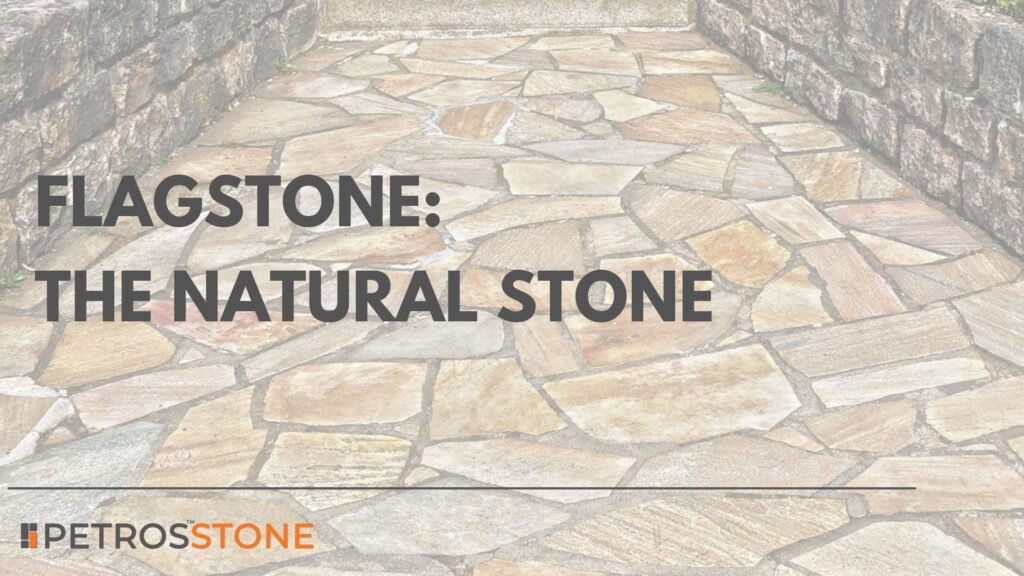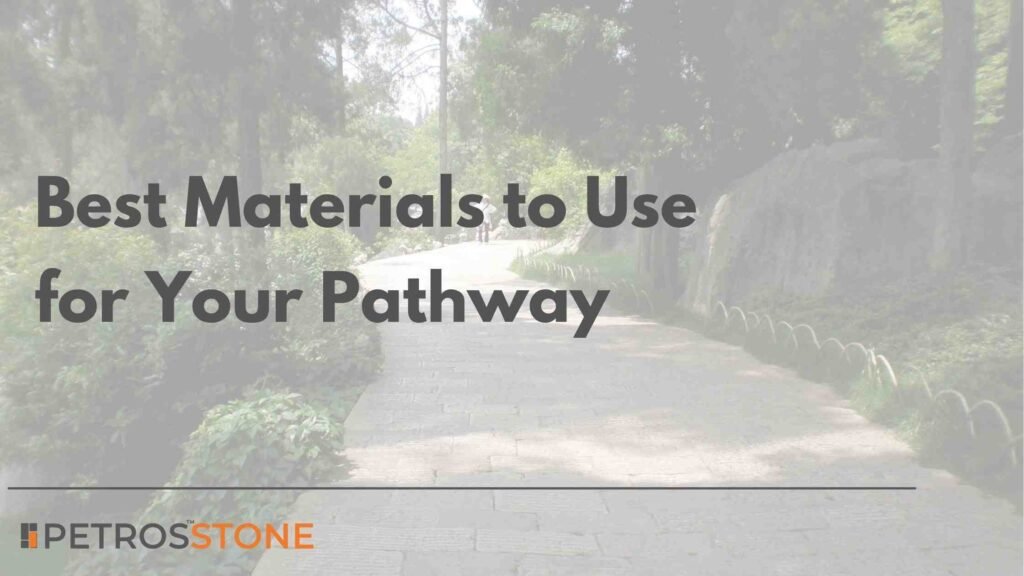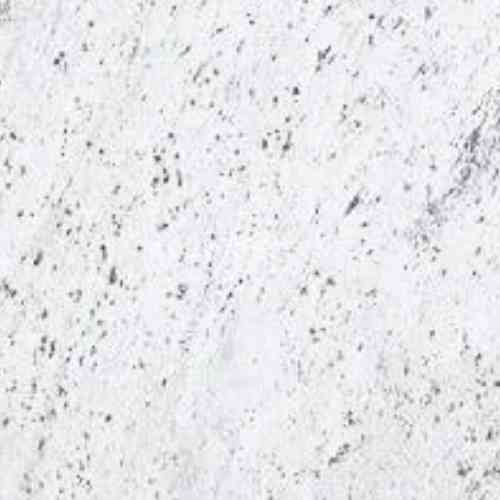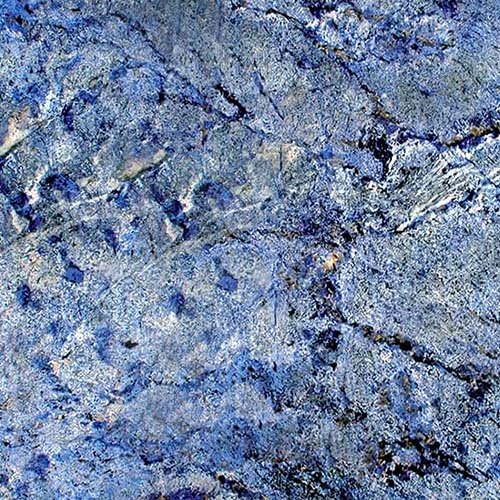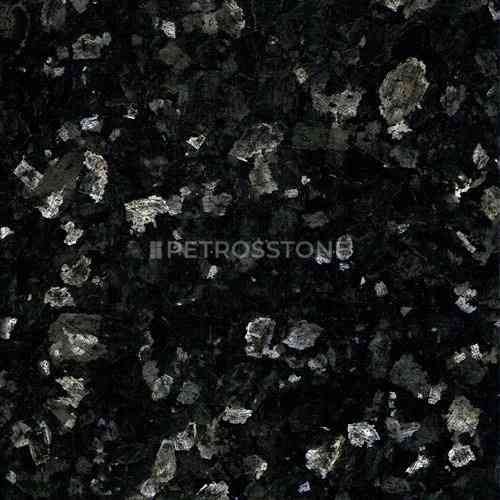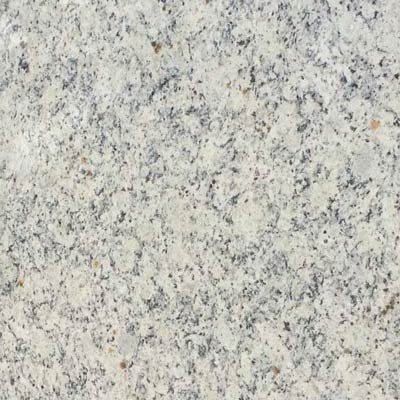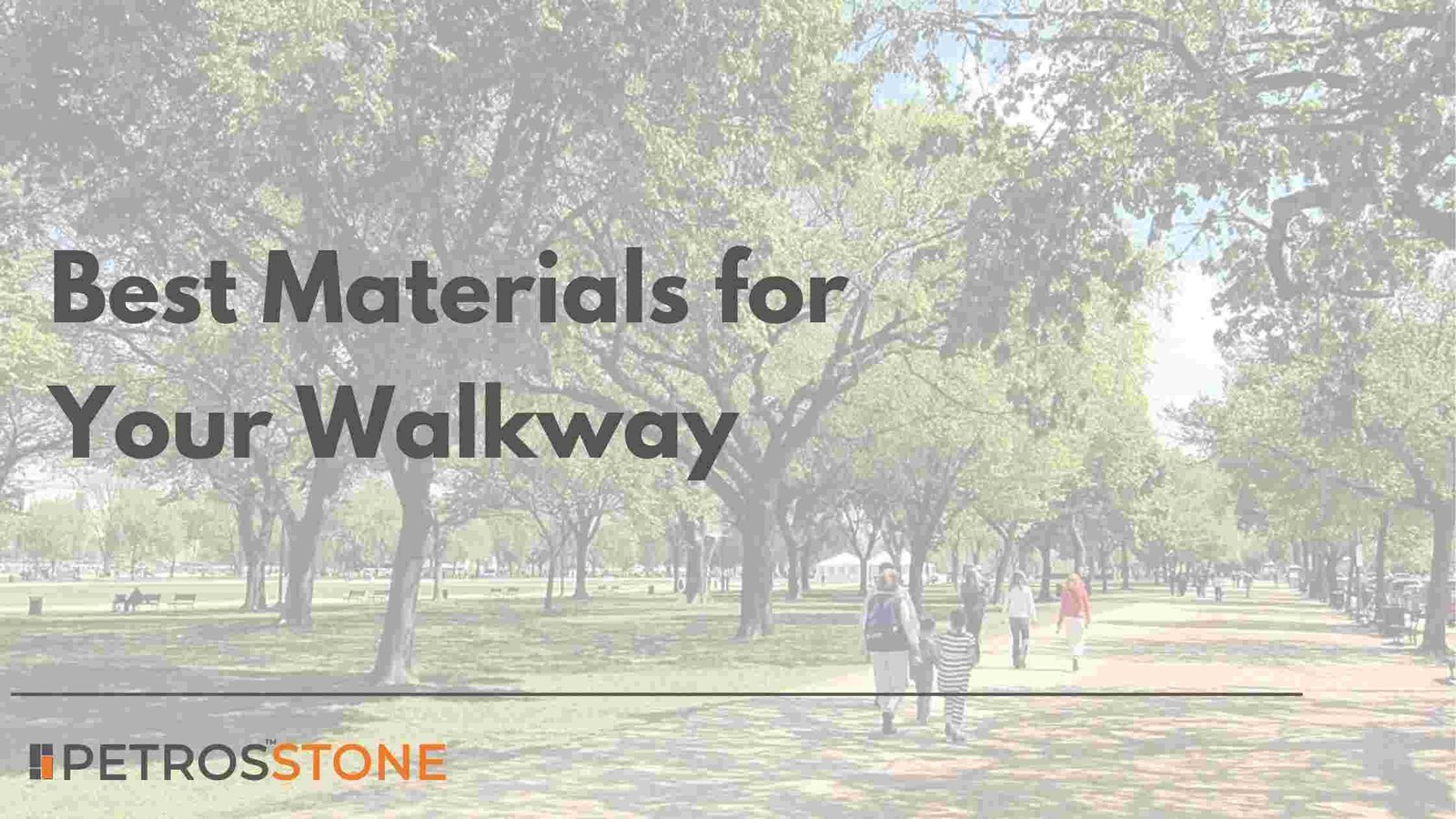
When it comes to landscape design, it’s not just the greenery that makes up for aesthetics. Even a stunning walkway plays a critical role in shaping the function and aesthetics of outdoor spaces.
Whether the walkway leads to the main door or takes you to the backyard, it’s crucial in enhancing the functionality and adding to the charm. Furthermore, the materials used for the walkway play a critical role in ensuring the pathway’s durability.
Walkway material costs vary significantly based on aesthetics, durability, and installation complexity. Crushed granite is among the most budget-friendly options, averaging USD 0.40 to 0.62 per sq. ft., ideal for natural garden paths. On the premium end, sandstone and finished granite range between USD 1.25 to 3.34 per sq. ft., offering elegant looks with long-lasting performance. For artistic appeal, pebble mosaic designs can go up to USD 2.83 per sq. ft., depending on the complexity of patterns and pebble size.
However, with plenty of materials to pick from, the real challenge is finding the best walkway material. In this article, we will look into the key factors to consider before picking the walkway material and explore what’s truly best for you.
- Key Questions to Ask Before Picking a Walkway Material
- Top 10 Preferred Walkway Materials
- 1. Cobblestone
- 2. Flagstone
- 3. Concrete Paver Blocks
- 4. Crushed Granite
- 5. Sandstone
- 6. Finished Granite
- 7. Stepping Stones
- 8. Kota Stone
- 9. Poured Concrete
- 10. Pebble Mosaic
- Garden Walkway Materials – A Comparative Analysis
- Design Ideas to Enhance Walkway Visual Appeal
- Walkways – An Organic Extension of Nature
- Summary
- Key Takeaways
Key Questions to Ask Before Picking a Walkway Material
There are several factors guiding the choice of the perfect garden walkway materials. Let’s look into the key questions you need to ask yourself before deciding on one.
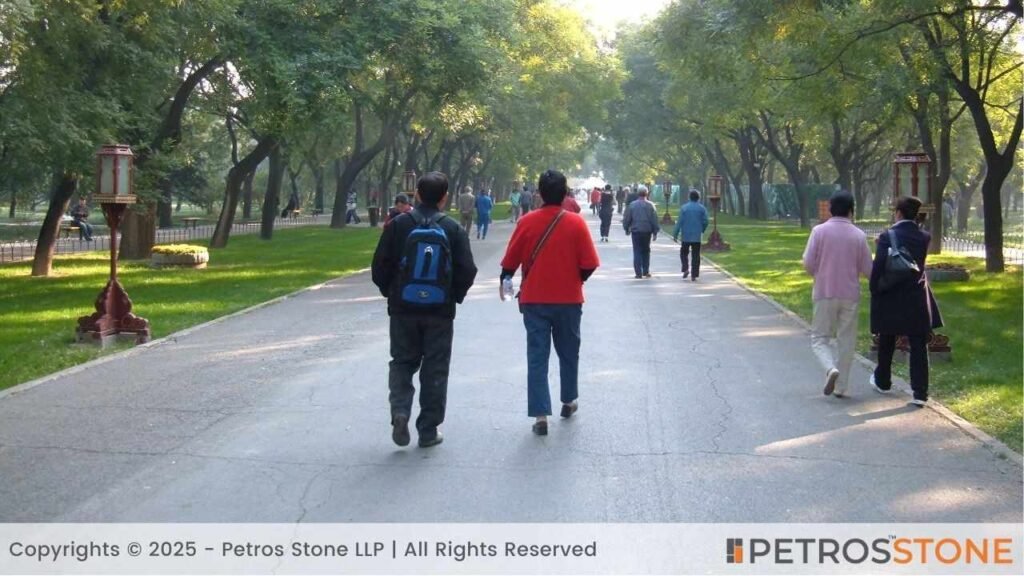
What will be the foot traffic?
By understanding the foot traffic of the walkway, you can evaluate the durability of the material required. For example, walkways leading to the main door will experience heavy daily use as compared to the rear garden walkways.
Based on the daily use and foot traffic, you must weigh the choice. The regularly used walkway materials must be more durable and weather-resistant, whereas slightly informal materials like natural stepping stones may work for low-traffic areas.
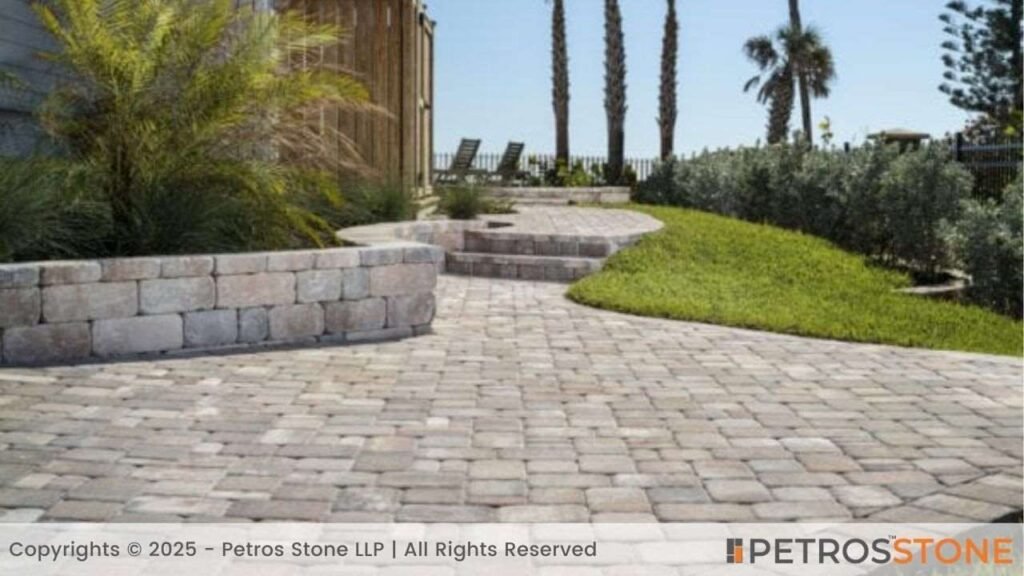
Which material will complement the overall design?
You can’t have the pathway materials looking alien to the overall property. Make sure to pick materials that align with the architectural design language.
While granite and concrete pavers are a few of the universal materials that complement any design language, flagstone or stepping stones in walkways bring a unique, rustic charm.
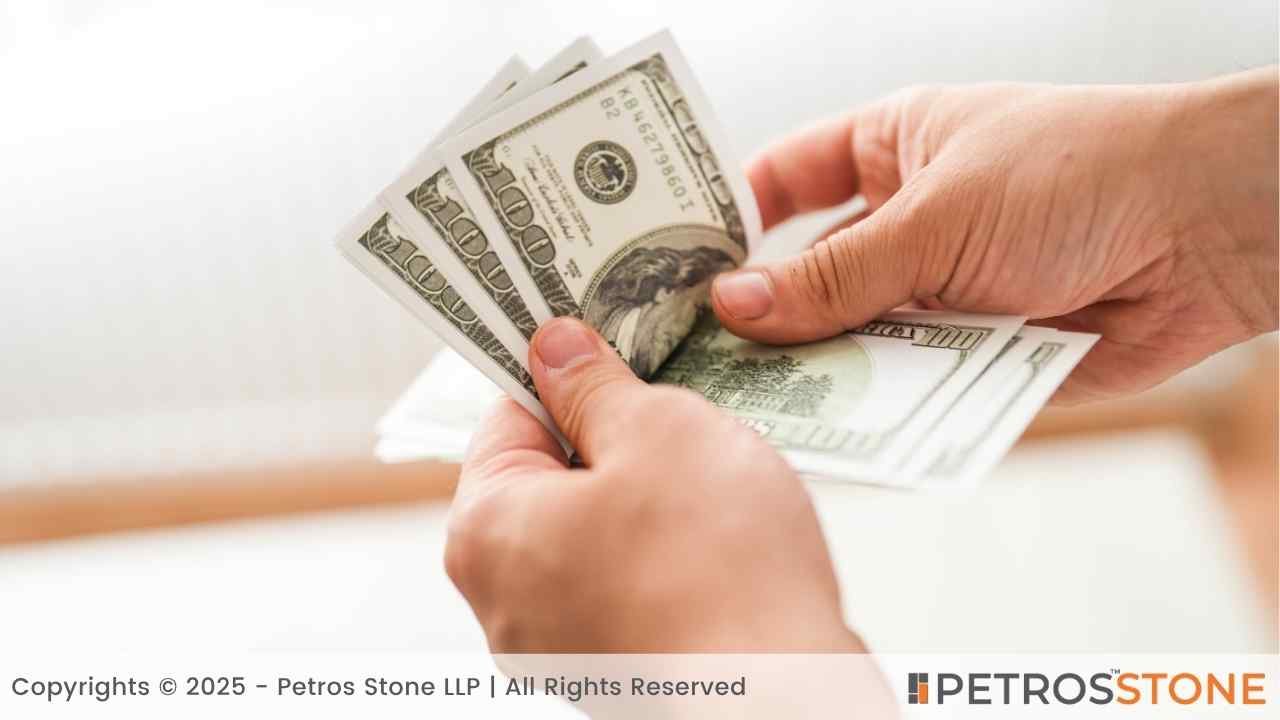
What does the budget demand?
One of the most critical factors driving the choice of walkway materials is the budget. Make sure to consider material cost, maintenance, and installation charges before picking the material.
While a few materials may work well for a DIY project, saving you from labor charges, others demand skilled labor. Ensure that you thoroughly examine all the costs associated with your choice of material.
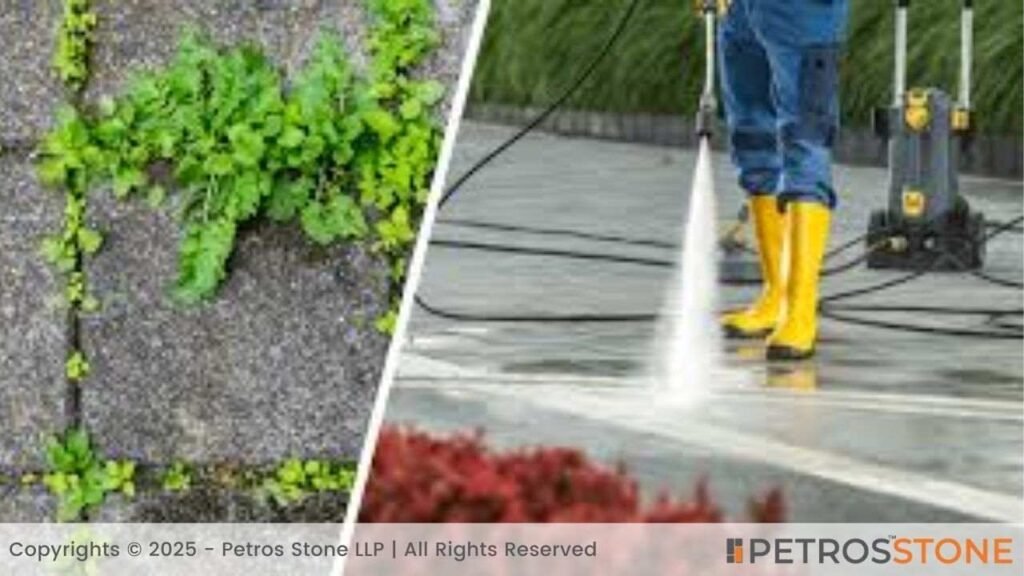
How much effort can you invest in maintenance?
The maintenance depends upon the walkway material installed. For example, a few of the stone walkway materials demand periodic weed control, sealing, etc., while others are durable on their own.
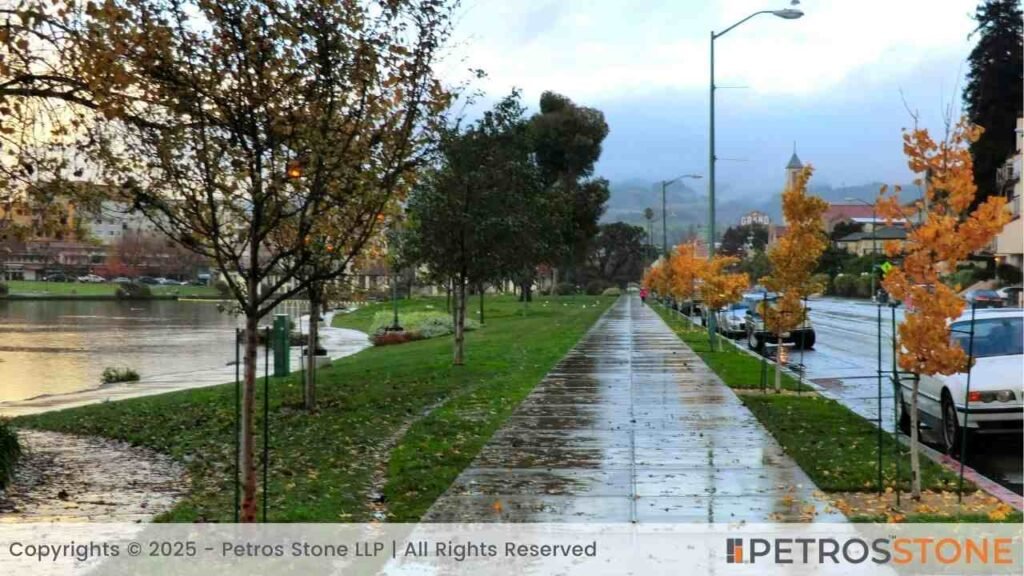
Will the material withstand the local climate?
Local climate has a huge impact on deciding the longevity of walkway materials. Rain-prone areas require the installation of non-porous, anti–slip, and durable materials to withstand extreme conditions.
Top 10 Preferred Walkway Materials
1. Cobblestone
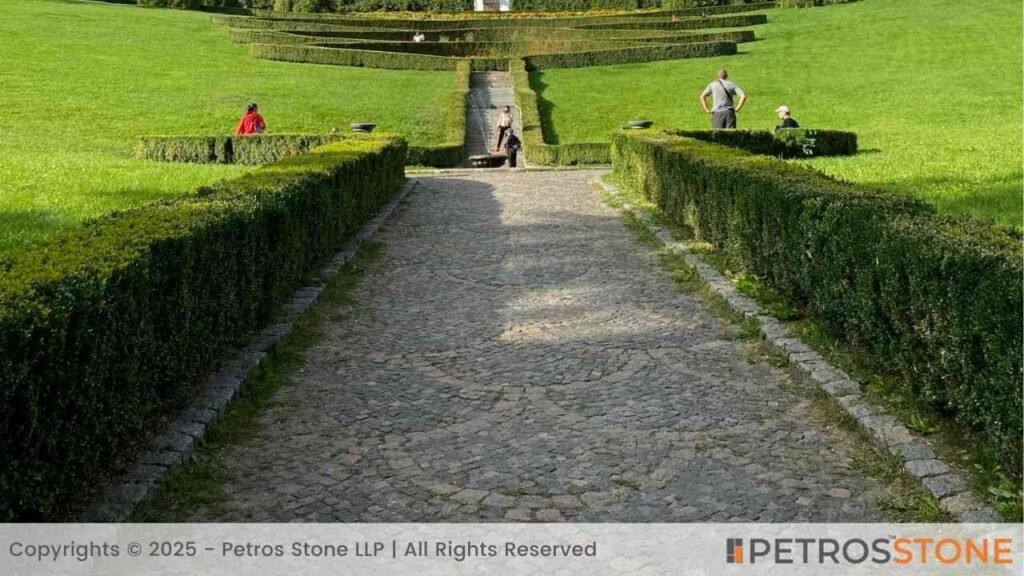
Are you looking for a timeless material that imparts textured aesthetics and enhances the longevity of a walkway? Cobblestone is the answer.
These sedimentary rocks are an ideal pick for driveways and walkways, flaunting a traditional look. Cobblestone is known to withstand heavy traffic and footfall owing to its sturdy nature. Being textured blocks with standard sizes of 90 x 90 mm and 100 x 100 mm, these exhibit anti-skid properties.
Cobblestone is available in multiple colors, making it one of the popular picks to complement any design language.
2. Flagstone
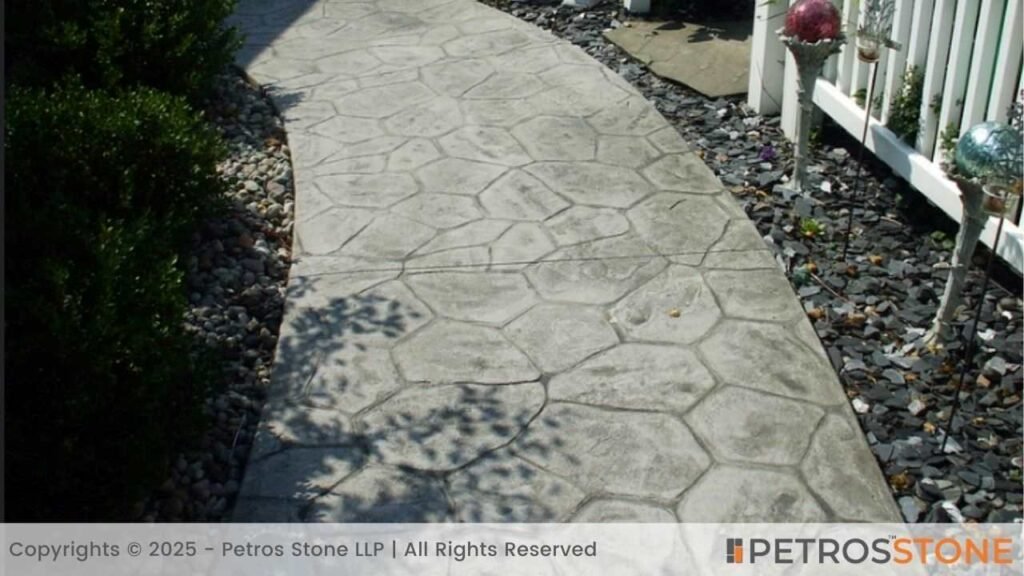
When it comes to outdoor walkway materials, flagstone is a popular choice due to its visual appeal and durability. The subtle gradient in earthy tones imparts a rustic look to the landscape design, while the sturdy stone withstands foot traffic and weather conditions.
Flagstone often comes in irregularly shaped flat slabs and has a rough texture, making it naturally anti-slip. Owing to these properties, it’s well-suited as one of the best garden walkway materials, pool decks, courtyards, and driveways.
When it comes to the maintenance of flagstone walkways, it demands periodic rinsing.
3. Concrete Paver Blocks
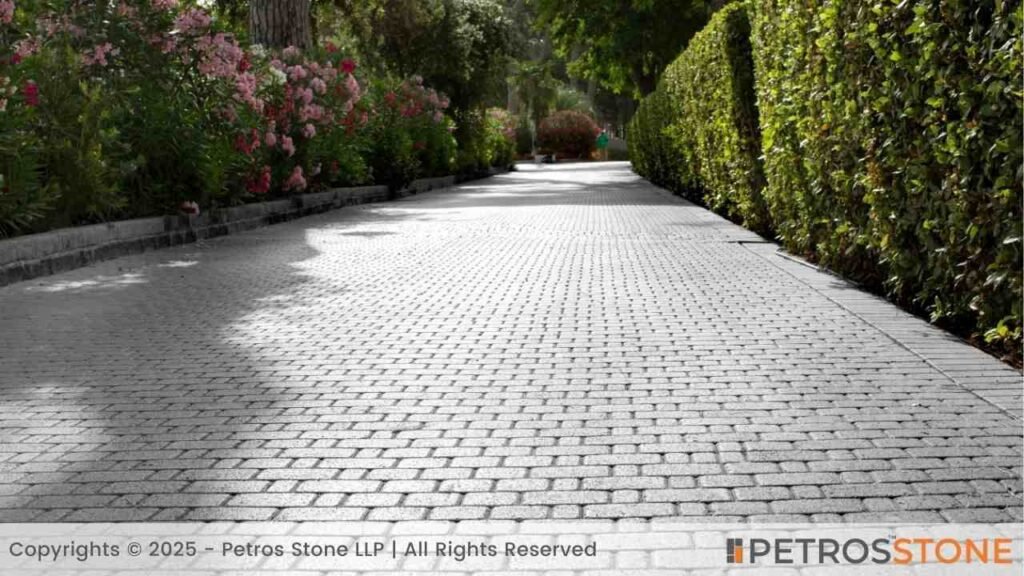
Concrete pavers are one of the modern choices for walkway materials. As these are available in multiple sizes, shapes, and textures, they are among the most versatile picks for walkways.
One of the top advantages of installing concrete pavers is the low maintenance. Once it has been installed, it can bear extreme weather, foot traffic, and demands only occasional cleaning. As concrete pavers as installed by interlocking blocks, the gaps are filled with sand, often making up for good drainage for the walkway.
The durability of concrete makes it well-suited for pathways and driveways.
4. Crushed Granite
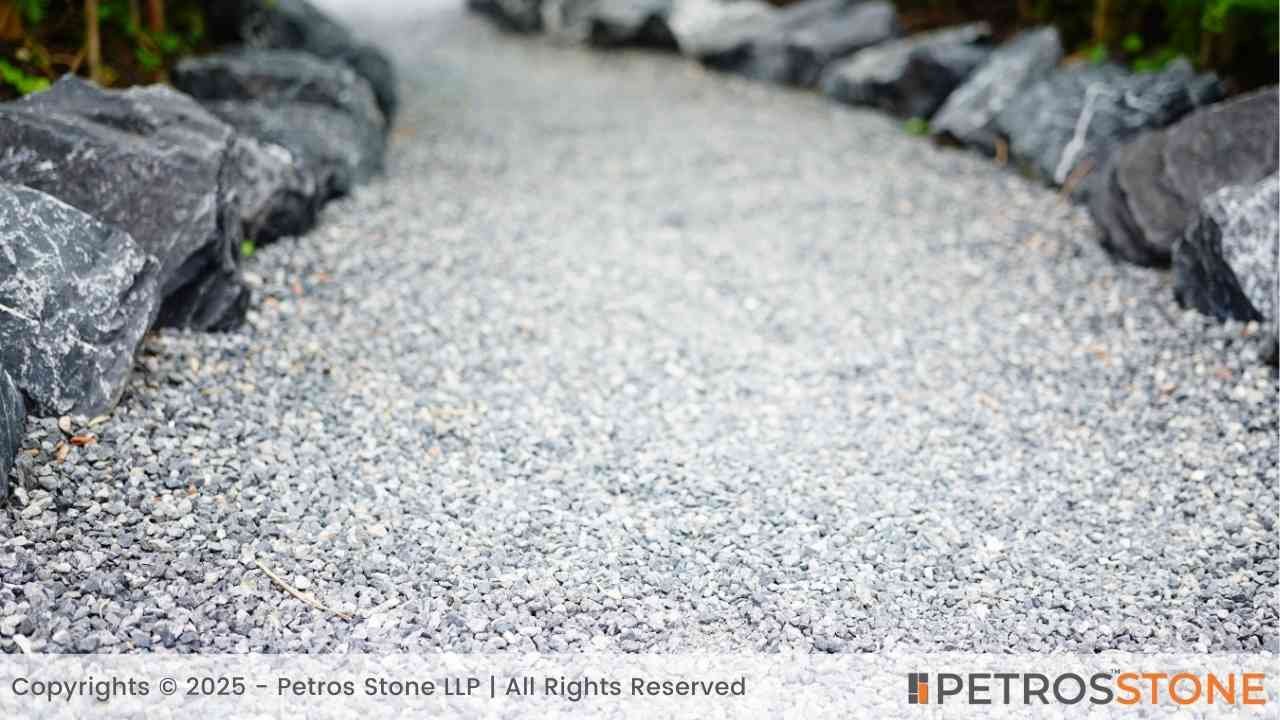
Crushed granite is commonly known as decomposed granite or granite gravel, where large granite rocks are broken into small pieces with strong and sharp edges, resembling fine crystals. It is one of the unique materials available in multiple colors, ranging from white, grey, to red.
One of the perks of using crushed granite as garden walkway material is that it can be artificially tinted with epoxy to attain the desired shade. The small, weathered pieces craft a stable surface for smooth walkways, offering a good drainage system.
While it’s suited as garden walkway materials and for walkways in dry climates, it demands occasional maintenance to keep it stable and compacted.
5. Sandstone
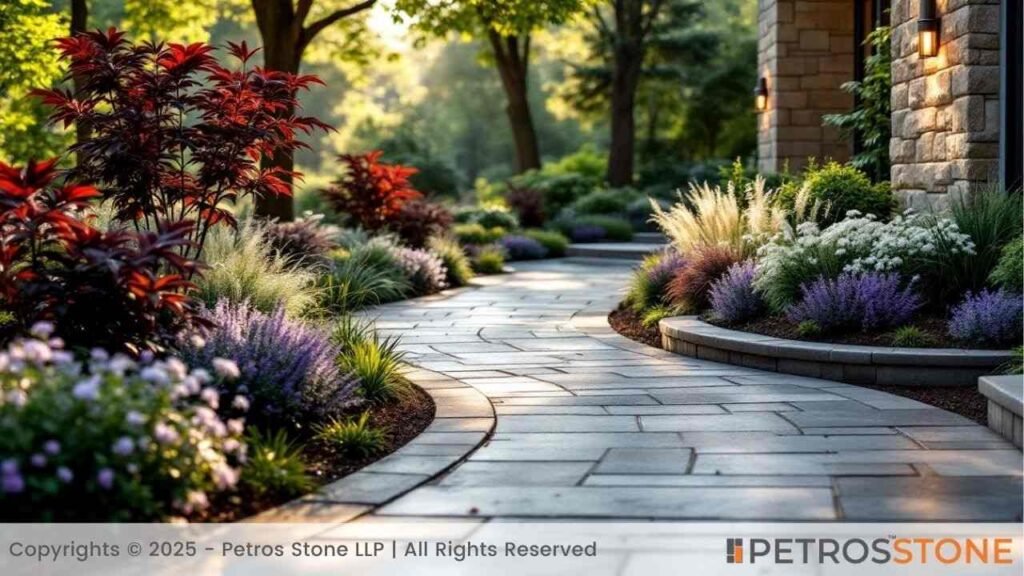
Does your design theme require an earthy walkway material? Sandstone can offer the perfect walkway with its earthy tones ranging from red to gold.
Being a natural material, each slab of sandstone flaunts a unique gradient and pattern. Available in multiple finishes, it can be used to attain the desired texture and look. The perks of picking sandstone for walkway materials are its ease of availability and durability.
6. Finished Granite
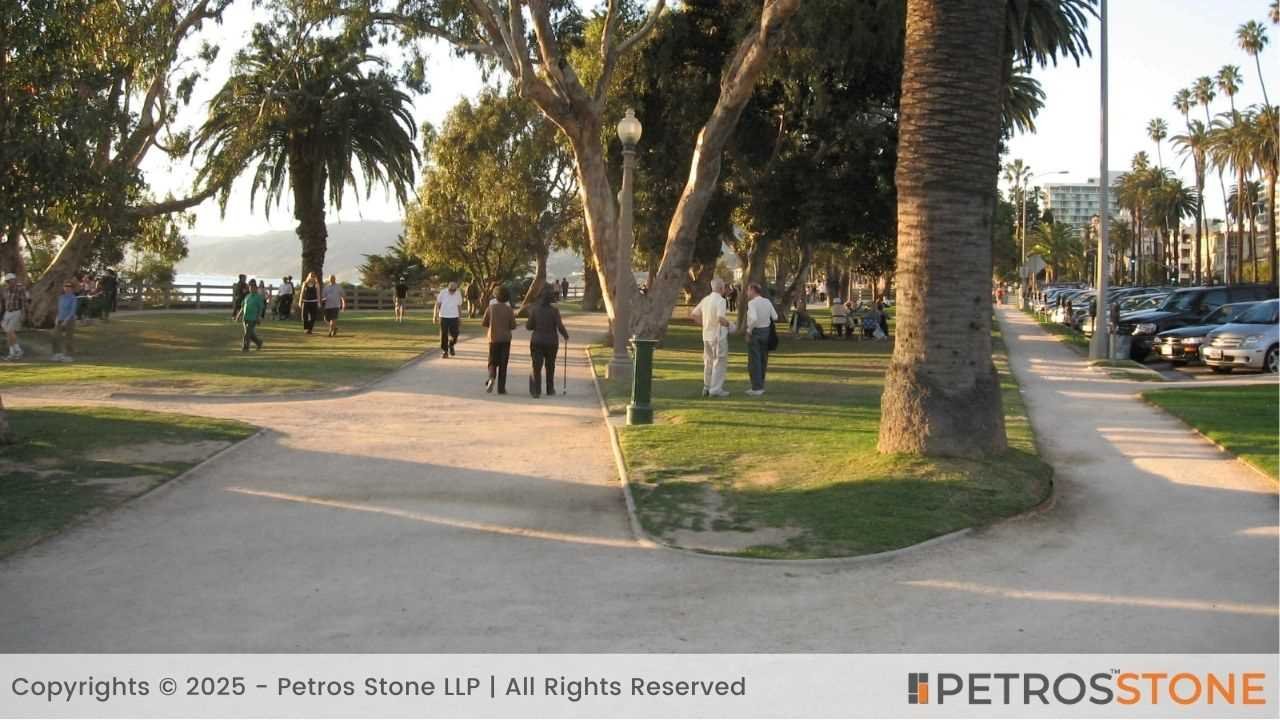
Are you looking for a natural stone with an expansive color palette for your walkway material? A granite slab could be your go-to pick.
For years, granite has been used as a walkway material and exhibited exceptional durability, whether it’s in a low or high-traffic area. With a plethora of shades to pick from and multiple surface finish options, it’s one of the most versatile picks, imparting a sense of sophistication to the outdoor design.
While the water-resistant properties prevent seepage, especially in cases of podium walkways, the anti-slip nature of sandblasted and leather finishes further makes it safe and functional.
7. Stepping Stones
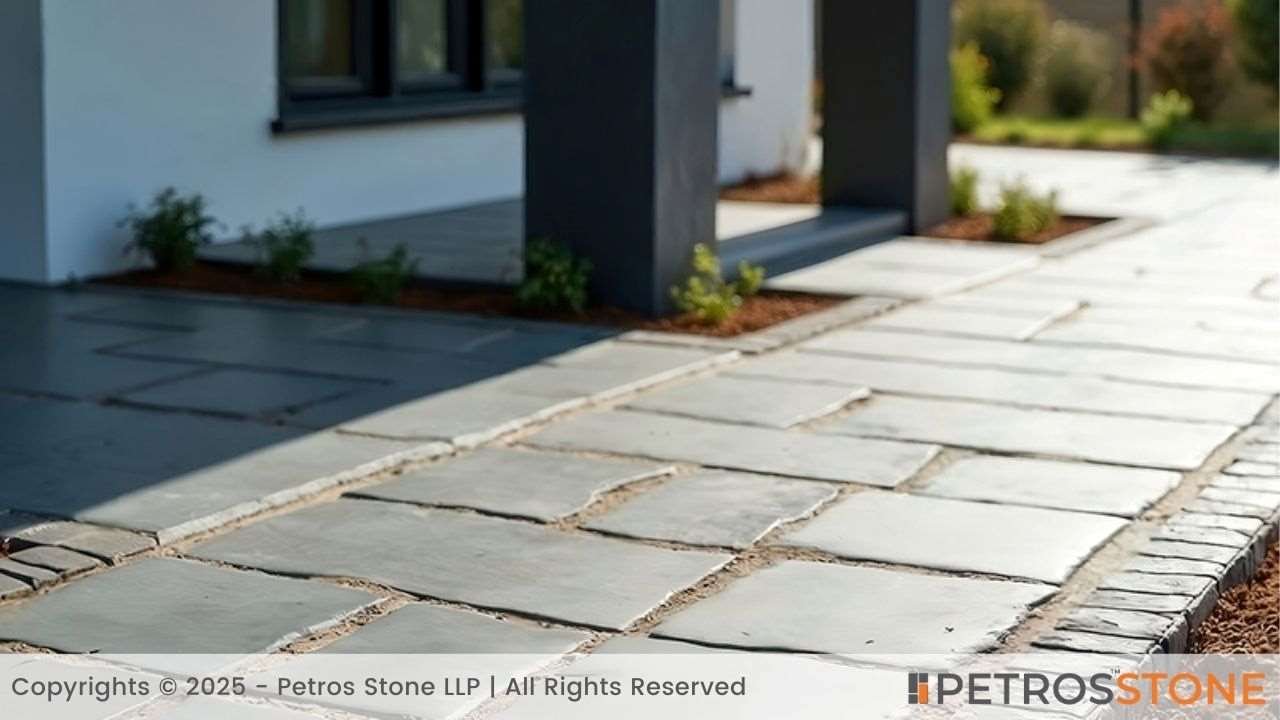
Do you want a walkway material that blends seamlessly with the landscaping? Stepping stones are one of the aesthetic, natural, and practical picks.
The raw texture amps up the aesthetics of the outdoor spaces and is one of the functional solutions to create a subtle garden walkway. Stepping stones are often installed as individual slabs of the desired size, offering the versatility in developing either a straight or an organic-shaped walkway.
A few of the common materials for natural stepping stones are flagstone, sandstone, clay, etc.
Pro-tip: Allow the hardscape to blend with softscape by combining raw textured kandala grey stepping stones and allowing the grass to fill the gaps.
8. Kota Stone
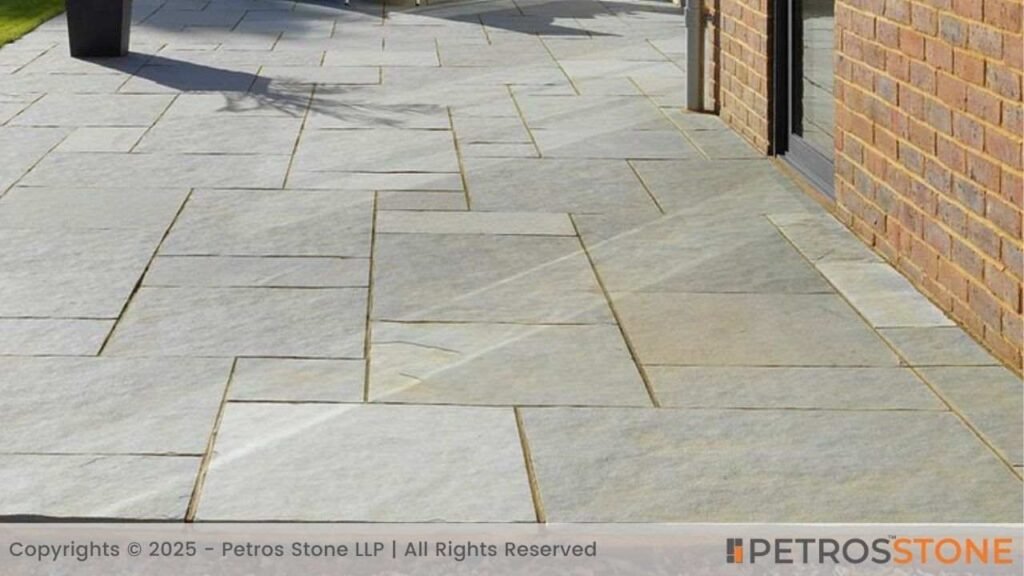
Kota stone is another attractive and functional option for walkway materials. With tones ranging from beige to pink, grey, and black, and many more earthy shades, this material is known for its affordability and ideal properties.
It is a non-porous limestone with fine grains and anti-skid properties. Furthermore, being a biodegradable material, it further enhances the eco-friendliness of the design. When it comes to walkway design, Kota stone offers multiple finishes ranging from mirror-finished to machine-cut.
Another perk of adding Kota stone to the walkway is its ability to reflect heat, making it a cool pick for hot and humid climates.
9. Poured Concrete
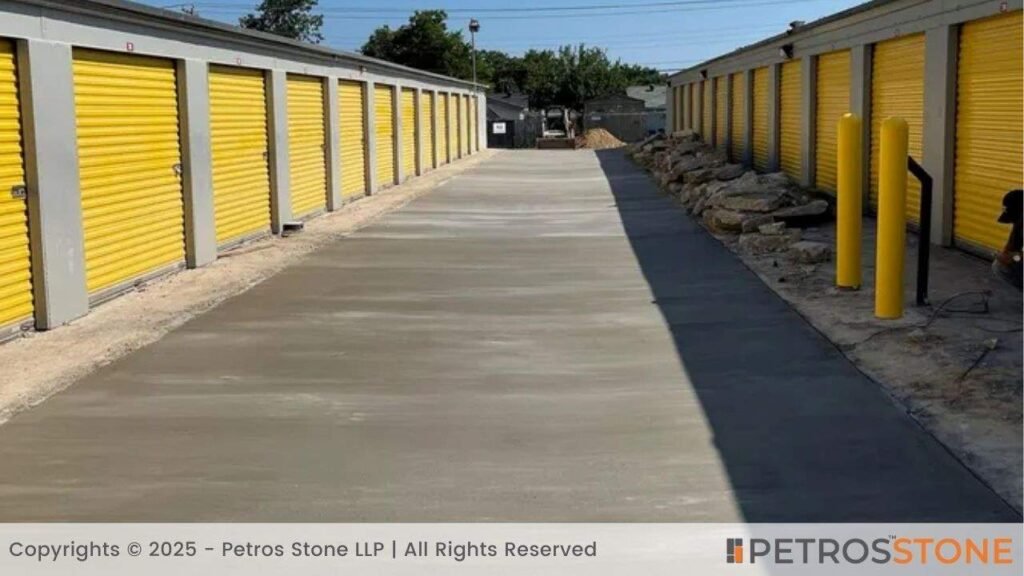
Poured concrete is often picked as the main driveway material owing to its durability. While it’s not common in lawn areas, the low-maintenance demands make it a popular choice for high-traffic walkways leading from the main gate to the entrance.
A well-installed concrete walkway promises durability for up to 30-50 years upon maintenance.
Pro-tip: Rather than opting for a typical grey concrete finish, consider stained or stamped concrete for a customized and eye-catching pattern.
10. Pebble Mosaic
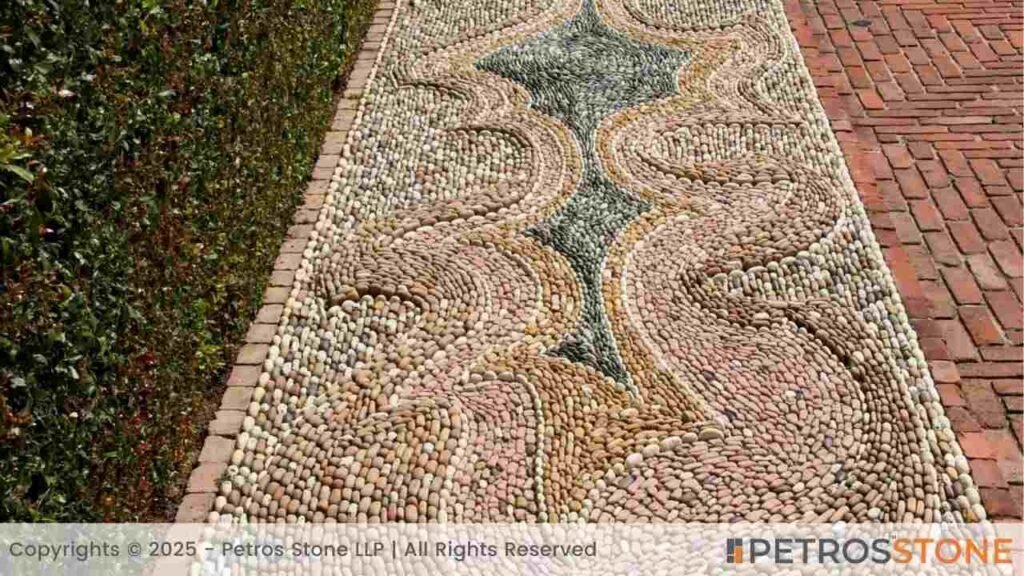
Have you visualized an artistic pattern in your mind for a garden walkway? Perhaps a colorful floral pattern or dual-toned geometric design?
Pebble mosaic is the pick for you.
One of the most exciting things about this walkway flooring material is that it can be a DIY project. Colored pebbles are laid on a concrete base as per design to attain the desired finish. What makes it one of the less commonly picked paving options is the precision in laying the pattern, leading to more time consumption and high installation cost.
Pro-tip: Consider adding pebbles with sizes ranging from ½” to 5” for a comfortable walkway.
Walkway Materials Cost Table (in USD)
| Material | Material Cost (USD/ft²) | Installation Cost (USD/ft²) | Maintenance Cost (USD/year) | Total Estimated Cost (USD/ft²) | Notes |
|---|---|---|---|---|---|
| Cobblestone | $0.09 – $0.40 (per piece) | $0.28 – $0.57 | $0.06 – $0.11 | $0.68 – $1.02 (approx.) | 9–10 pieces needed per sq ft |
| Flagstone | $0.45 – $1.13 | $0.45 – $0.91 | $0.11 – $0.17 | $1.02 – $2.21 | Includes joint filling |
| Concrete Pavers | $0.34 – $1.70 | $0.28 – $0.57 | $0.06 – $0.11 | $0.68 – $2.27 | Interlocking system |
| Crushed Granite | $5.67 – $13.59 (per ton) | $0.17 – $0.34 | $0.06 – $0.11 | $0.40 – $0.62 (avg per sq ft) | 1 ton covers 60–70 sq. ft. |
| Sandstone | $0.73 – $2.49 | $0.40 – $0.68 | $0.11 – $0.17 | $1.25 – $3.34 | Sealing may be required |
| Finished Granite | $0.57 – $1.70 | $0.45 – $0.91 | $0.06 – $0.11 | $1.08 – $2.72 | Available in multiple finishes |
| Stepping Stones | $0.57 – $1.70 (per piece) | $0.17 – $0.34 | $0.06 | $0.74 – $1.08 (depends on spacing) | Used with gaps, so cost varies |
| Kota Stone | $0.40 – $1.30 | $0.28 – $0.57 | $0.06 – $0.09 | $0.74 – $1.93 | Budget-friendly, heat-reflective |
| Poured Concrete | $2.04 – $2.83 | Included | $0.03 – $0.06 | $2.10 – $2.89 | Includes formwork and finishing |
| Pebble Mosaic | $0.17 – $0.57 (per kg) | $0.57 – $1.13 | $0.02 – $0.06 | $1.13 – $2.83 (depends on design) | Artistic patterns increase cost/time |
Garden Walkway Materials – A Comparative Analysis
| Material | Pros | Cons | Application |
| Cobblestone | Extremely durable, multiple colors, anti-skid | Gaps may lead to the growth of weeds, slightly expensive | Walkways, driveways, patios, courtyards |
| Flagstone | Raw visual appeal, durable | High initial cost | Formal lawns, walkways, patio |
| Concrete Paver Blocks | Versatile, supports natural drainage | May shift in the absence of a proper base | Driveways, lawn walkways |
| Crushed Granite | Unique appearance, durable, weather-resistant | Demand professional installation, which may shift over time | Garden walkway materials, patio, parking area |
| Sandstone | Durable, multiple surface finishes, easily available | Slightly porous, dents and scratches are visible on the surface | Exterior walkways, patios |
| Finished Granite | Multiple colors, finishes, durable, stain-proof, non-porous | Slightly expensive, requires skilled installation | Formal pathways, podiums, luxurious entrance zones |
| Stepping Stones | Natural charm, affordable | Uneven texture, less practical for heavy traffic zones | Best material for garden walkways |
| Kota Stone | Eco-friendly, budget-friendly, and reflects heat | May stain easily, not as hard as granite | Patio, outdoor steps, verandah, walkways |
| Poured Concrete | Durable, weather-proof | Typical look unless stamped or stained | Driveways, high foot traffic walkways |
| Pebble Mosaic | Artistic, low-maintenance, versatile in terms of tones and sizes | Time-consuming installation, expensive | Garden pathways, decorative flooring element |
Design Ideas to Enhance Walkway Visual Appeal
Green Up with Plant Beds
Don’t let the walkway overwhelm your landscape design. Add a softer look and texture by lining the walkway with a green belt. Plant seasonal flowers and ornamental ground covers to accentuate the aesthetics of the walkway.
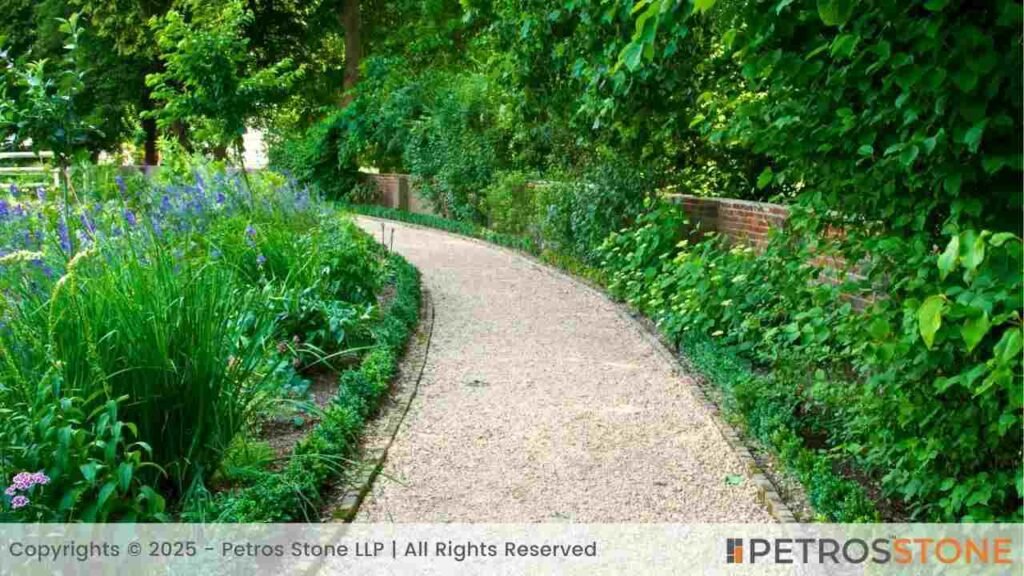
Add a Unique Edge
When it comes to walkway materials, edging becomes crucial for a neat look. Make sure to dress up the materials with a well-defined and complementary edging in metal, stone, or brick.
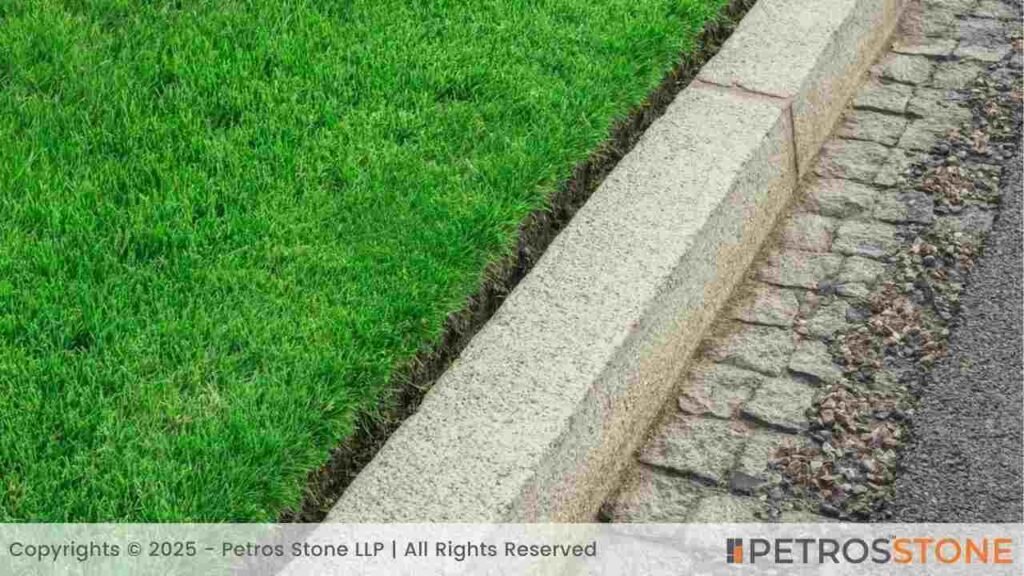
Maximize Function with Lighting
A walkway isn’t about the aesthetics alone. Make sure to enhance its functionality by installing ambient lighting. Bollards, solar path lights, or recessed LEDs can be installed along the walkway to ensure functionality and safety at night.
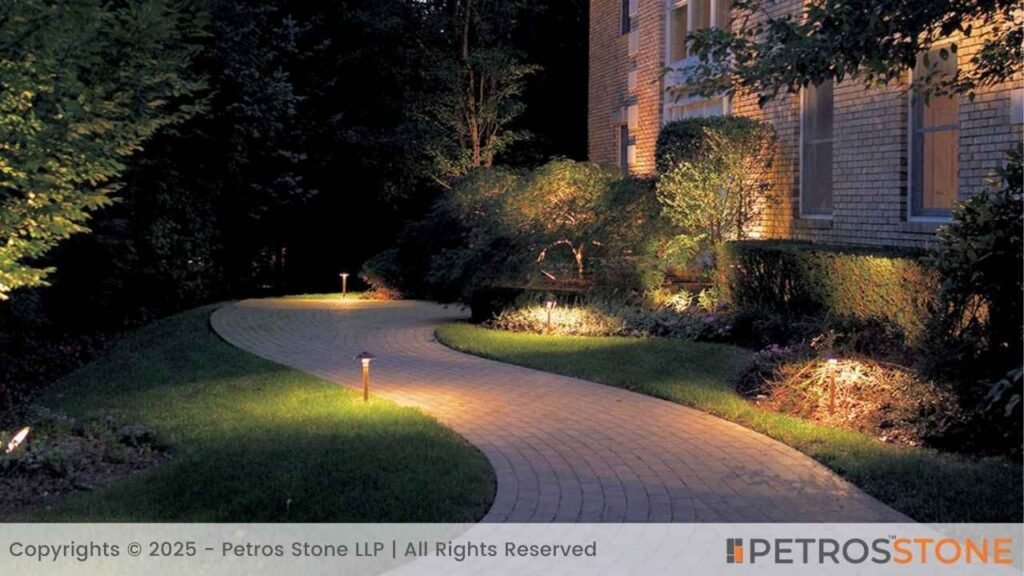
Play with Patterns
Don’t shy away from trying unique patterns. When it comes to stone walkway materials, you can develop new patterns by mixing tones, finishes, and adding different sizes of stone for an eye-pleasing look.
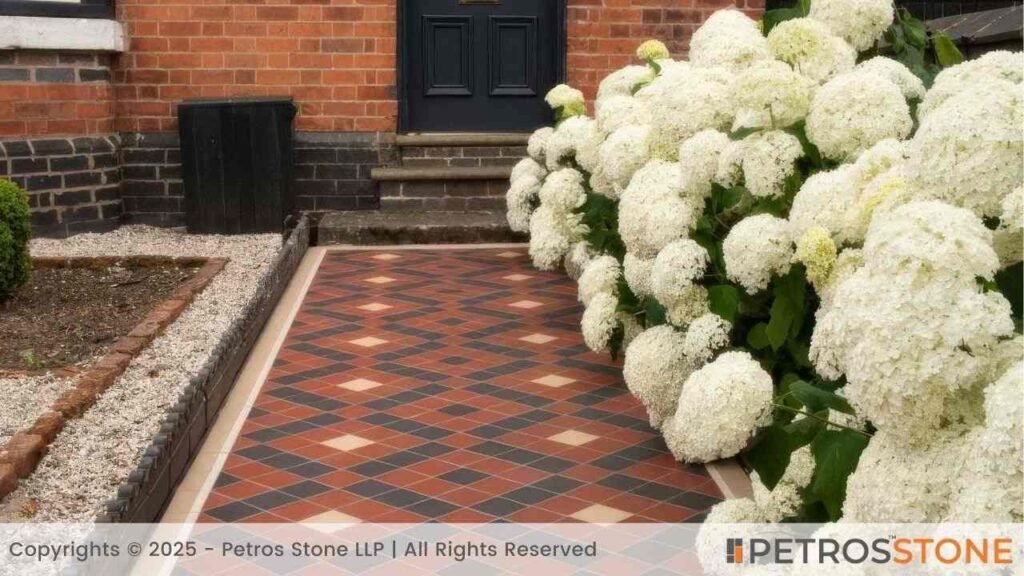
The More Materials, The Merrier Designs (Mix Materials)
Walkway designs don’t necessarily mean paving in a single material. Go over the top by mixing materials, developing a pattern that feels organic, welcoming, and adds to the visual interest. .
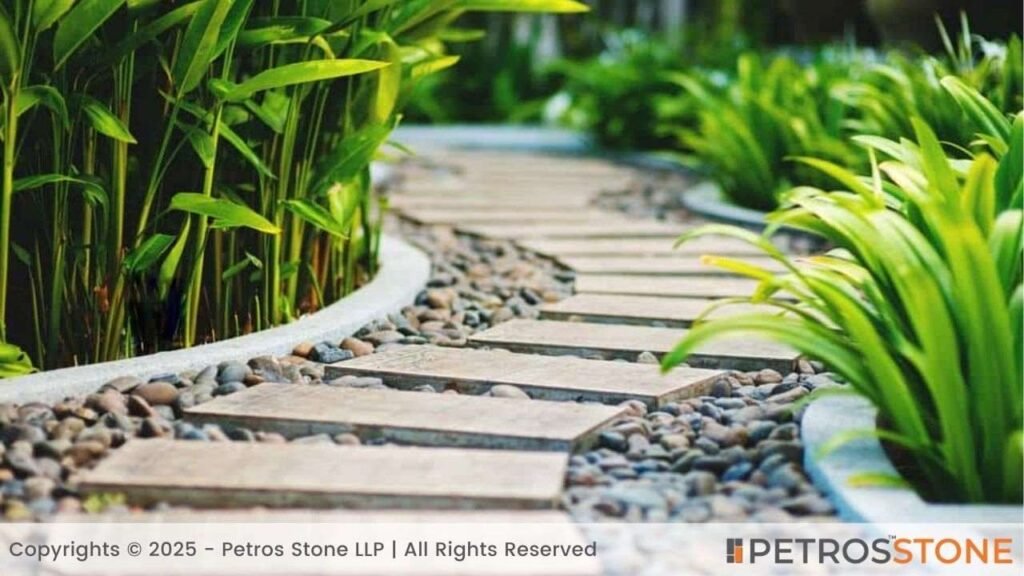
Walkways – An Organic Extension of Nature
Whether you’re opting for the durability of granite or the eco-friendliness of Kota stone, make sure that your choice of walkway material seamlessly integrates with the design. Assess the pros, cons, understand the climate’s demand, and review your budget before making the final choice.
For professional consultation, connect with our stone experts at Petros Stone.
Summary
Choosing the right garden walkway material can transform your landscape by enhancing both aesthetics and functionality. From classic cobblestone to modern poured concrete, each material has its own pros, cons, and ideal applications. Factors like foot traffic, budget, design compatibility, and climate play a crucial role in deciding what suits your outdoor space. Smart design tips like mixing materials, adding lighting, and plant edging also elevate your walkway’s appeal.
Key Takeaways
- Cobblestone, flagstone, granite, and pavers are highly durable and ideal for high-traffic areas.
- Kota stone and crushed granite are cost-effective and eco-friendly choices, best for garden paths.
- Choose materials based on traffic, climate, and visual harmony with your home’s architecture.
- Mixing materials, adding plant beds, or playing with patterns can enhance design appeal.
- Proper edging, lighting, and regular maintenance are key to long-lasting and safe walkways.
Feel free to get in touch for a free consultation, quote, and get a detailed understanding from our experts here at Petros®. Visit https://petrosstone.com/ or call +91-8446360361 and WhatsApp

Hello!
I’m Tanika, an architect and writer, blending design expertise with a passion for storytelling. At Petros Stone, I help readers navigate through the complex material choices and empower them to craft well-informed and beautiful spaces through natural stones.
Brown Granite
White Galaxy Granite
Blue Bahia Granite
Silver Cloud Granite
Black Pearl Granite
Dallas White Granite

